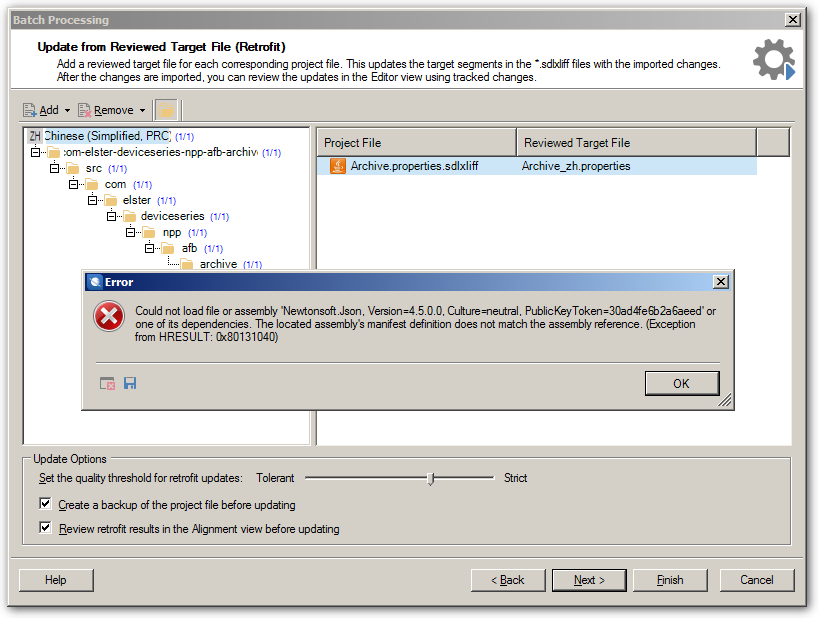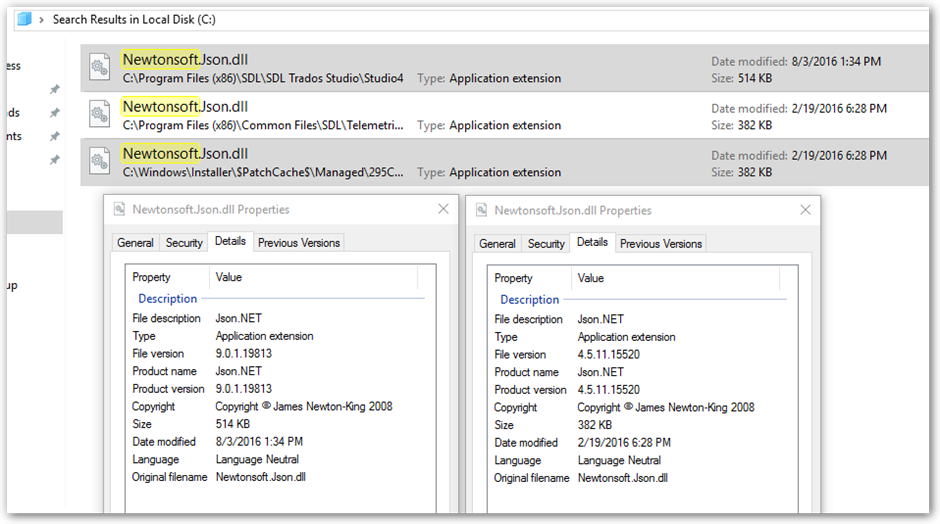I just tried to test my PowerShell Tookit scripts on Windows 10 and it's not working due to following exception.
It works perfectly fine on Windows 7.
Does the "Version=4.5.0.0" have something to do with .NET Framework version? Windows 10 ship with .NET 4.6.x by default...
And what on Earth has JSON library to do with retrieving language ISO abbreviation property?!?! :-O
The following exception occurred while retrieving member "IsoAbbreviation": "Could not load file or assembly
'Newtonsoft.Json, Version=4.5.0.0, Culture=neutral, PublicKeyToken=30ad4fe6b2a6aeed' or one of its dependencies. The
system cannot find the file specified."
At C:\Users\Tester\Documents\WindowsPowerShell\Modules\PackageHelper\PackageHelper.psm1:117 char:3
+ $TargetLanguagesList = @($Project.GetProjectInfo().TargetLang ...
+ ~~~~~~~~~~~~~~~~~~~~~~~~~~~~~~~~~~~~~~~~~~~~~~~~~~~~~~~~~~~~~
+ CategoryInfo : NotSpecified: (:) [], ExtendedTypeSystemException
+ FullyQualifiedErrorId : CatchFromBaseGetMember

 Translate
Translate


